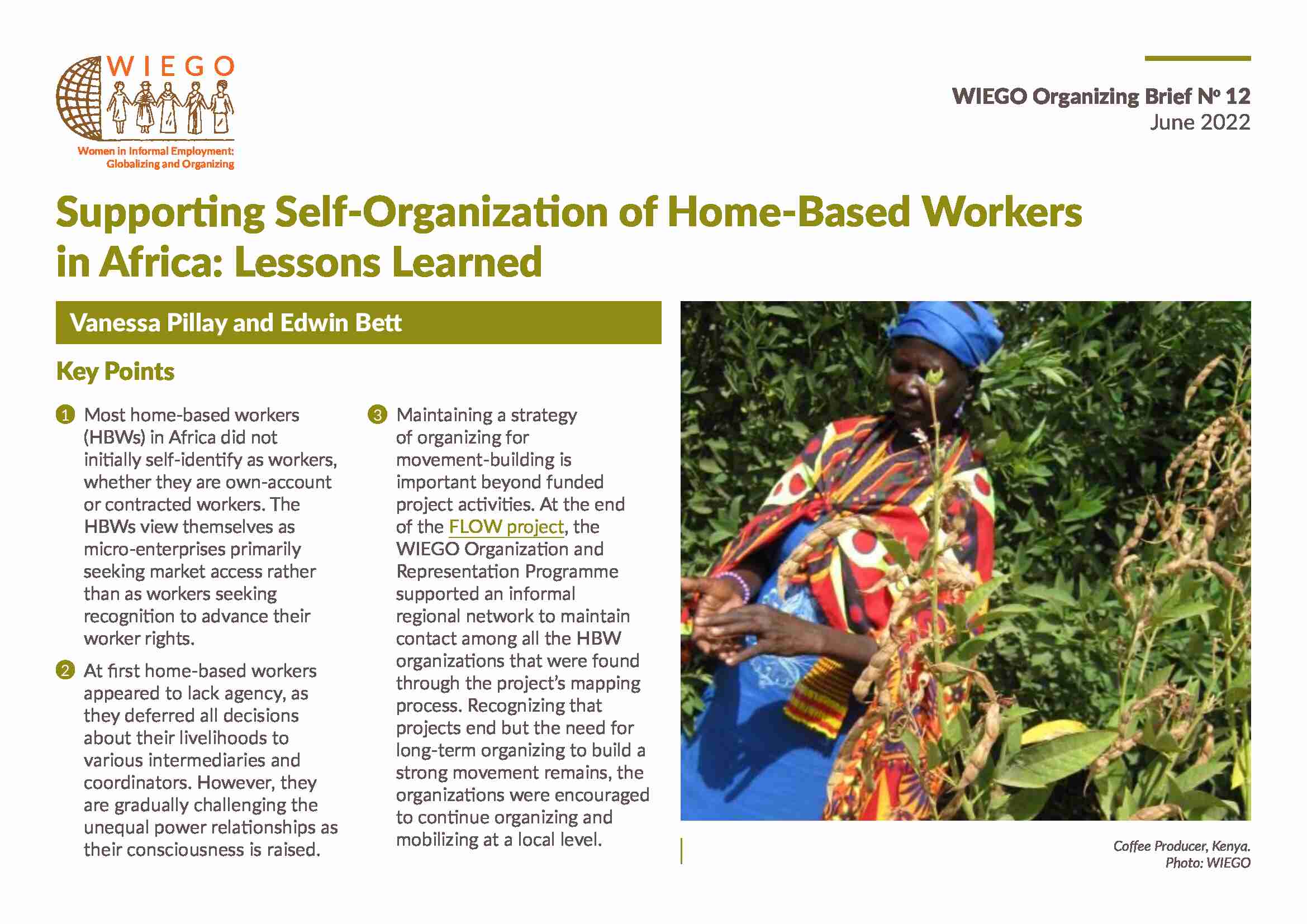Supporting Self‑Organization of Home‑Based Workers in Africa: Lessons Learned
This organizing brief draws out the lessons of home-based workers (HBWs) organizing in five countries; Ethiopia, Kenya, South Africa, Tanzania, and Uganda. It highlights different levels of power relationships that impact on HBWs' autonomy to organize in order to improve their lives and their livelihoods. The brief notes the importance of self-organization to build democratic organization among HBWs.
Key Points
- Most home‑based workers (HBWs) in Africa did not initially self‑identify as workers, whether they are own‑account or contracted workers. The HBWs view themselves as micro‑enterprises primarily seeking market access rather than as workers seeking recognition to advance their worker rights.
- At first, home‑based workers appeared to lack agency, as they deferred all decisions about their livelihoods to various intermediaries and coordinators. However, they are gradually challenging the unequal power relationships as their consciousness is raised.
- Maintaining a strategy of organizing for movement‑building is important beyond funded project activities. At the end of the FLOW project, the WIEGO Organization and Representation Programme supported an informal regional network to maintain contact among all the HBW organizations that were found through the project’s mapping process. Recognizing that projects end but the need for long‑term organizing to build a strong movement remains, the organizations were encouraged to continue organizing and mobilizing at a local level.
View list of all: Organizing Briefs

